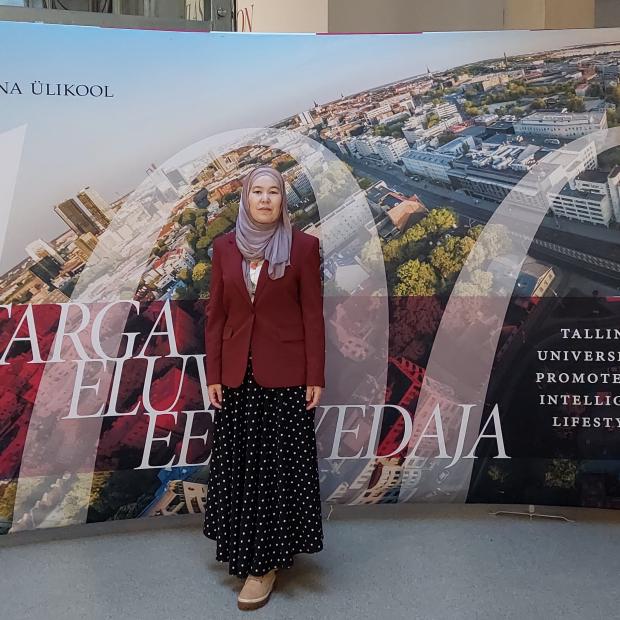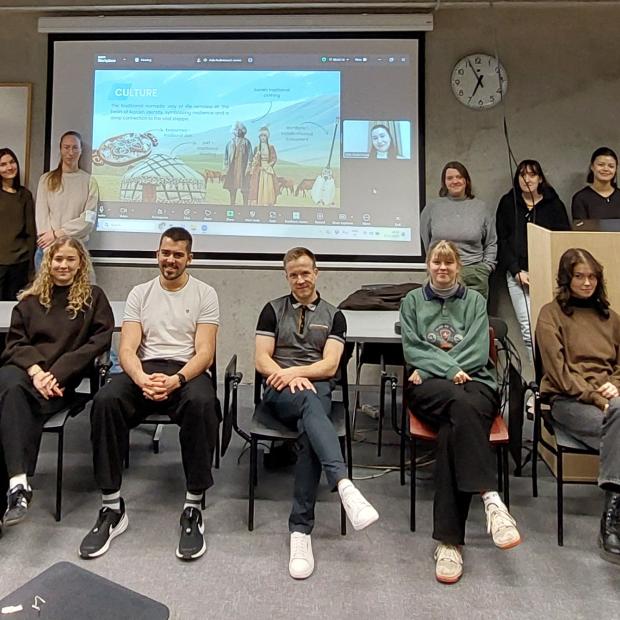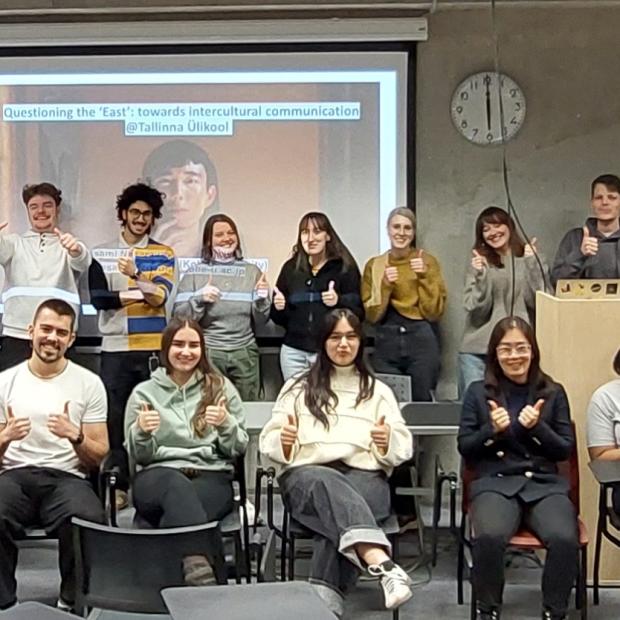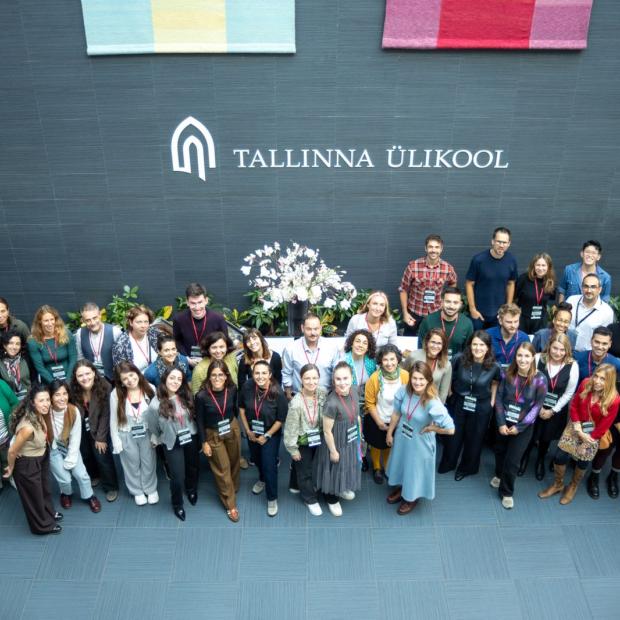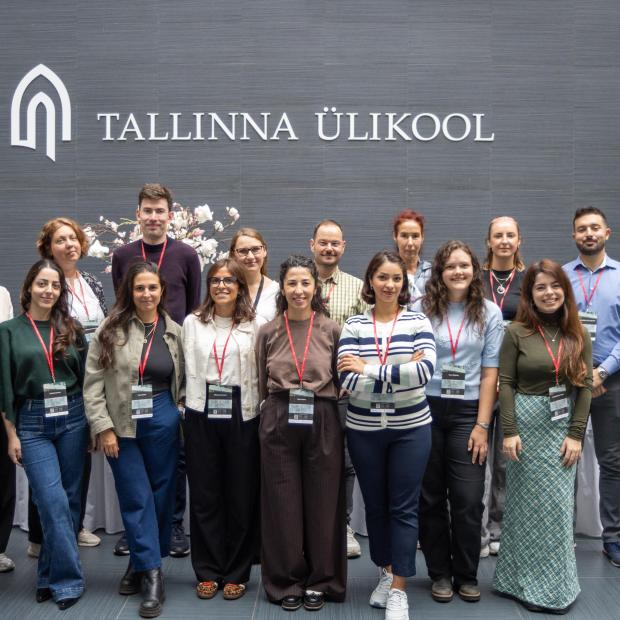What is Eurocampus and EMICC?
Professor of Intercultural Communication and EMICC Executive Director Anastassia Zabrodskaja gives us the answers.
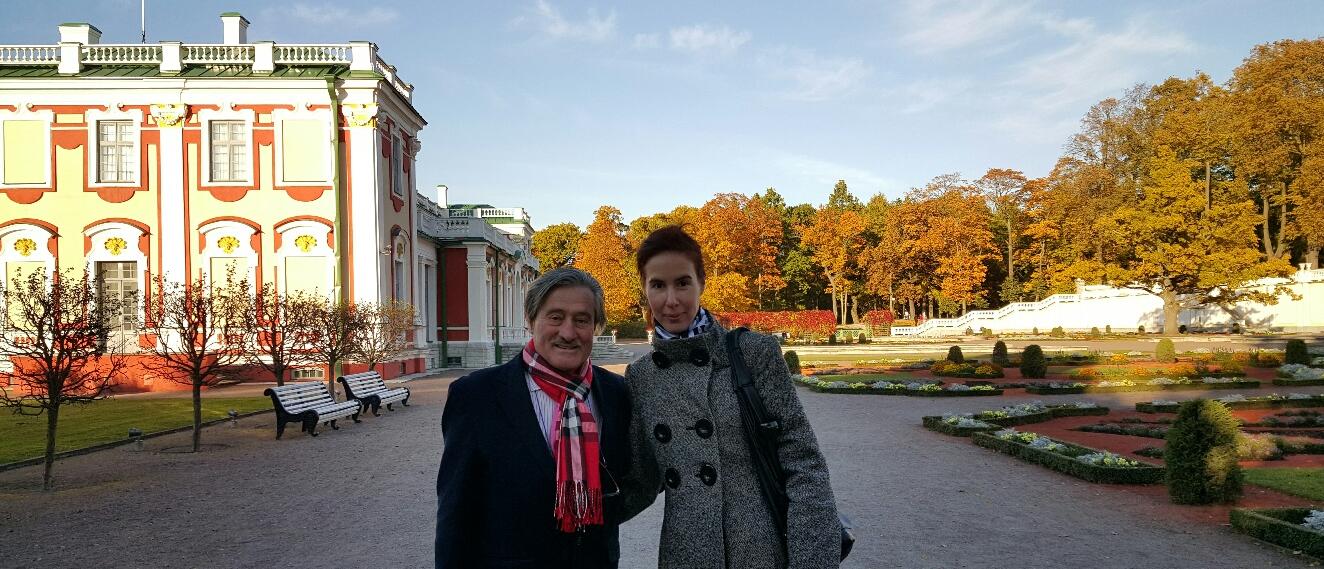
Some time ago, news was published that TLU BFM will be home to a semester of intercultural communication. Could you please talk more about this today?
I have to start in 2013, when the then head of the Communication Management programme, Professor of Communication Management, Kaja Tampere and the then director of the Communication Institute, Tiina Hiob, began working with EMICC, the European of Masters in Intercultural Communication. As it is known, the English-language Master's Programme in Communications Management was launched in 2013...
EMICC is a teaching and research network, the essence of which is the annual Eurocampus, a four-month intensive programme taught by different professors from network universities
Congratulations! Your curated Master’s programme turns 10 years old this year.
Yes, indeed it is thank you very much! And one of its main components was initially related to intercultural communication. Cooperation with EMICC was therefore initiated. I myself, however, got involved from 2014. It so happened that I was working as a Professor of Estonian as a Second Language, but at the same time I was teaching Intercultural Communication to future teachers of Estonian as a second language. My director at the time, Professor Piret Viires, put me in touch with Tiina Hiob, who made a tempting offer that I not only couldn't refuse, but which changed my whole life as an educator and researcher. I transferred to her institute and started teaching courses in Intercultural Communication and curating a master’s programme in Communication Management. In addition, I started teaching at Eurocampus and became acquainted with the then Executive Director of EMICC, Professor Peter Praxmarer (USI Università della Svizzera italiana, Lugano, Switzerland), who has strongly influenced me academically, professionally and in a purely human way.
(This interview opens with our photo taken during Professor Peter Praxmarer's introductory visit to TLU BFM on October 16, 2015.)
Please tell us more about EMICC and Eurocampus.
These are, in my opinion, the best educational endeavours that the European Union has so far been able to create and support to facilitate the sustainability of both for 21 years now! Nevertheless, let me start with the fact that EMICC is a teaching and research network, the essence of which is the annual Eurocampus, a four-month intensive programme taught by different professors from network universities. Up to five students from each partner university can participate. My first Eurocampus was in Paris, when it was hosted by the Institut national des langues et civilisations orientales (Inalco). I was amazed at the enthusiasm and commitment of the professors involved! It turned out that the teaching will be done through Erasmus+ exchanges, and there will be a preparatory meeting before each Eurocampus to put together the curriculum. The first Eurocampus semester took place at the University of Jyväskylä in 2002 and in 21 years, only in autumn 2020 has it not taken place due to a pandemic. Behind such a viable programme, there are certainly professionals in their field! The founders of Eurocampus are Professor Liisa Salo-Lee (then Professor of Intercultural Communication at the University of Jyväskylä), Professor Marie-Thérèse Claes and Professor Bernd Müller-Jacquier. Imagine Professor Marie-Thérèse Claes (Vienna University of Economics and Business) taking part in the Eurocampus semester in Tallinn!
But will Eurocampus 2023 be the first for TLU BFM?
Actually no, and here I have to look at history again. When I went to teach in Inalco, right at the preparatory meeting for Eurocampus 2015 in Cambridge, I suggested that TLU BFM could welcome Eurocampus within its walls in 2016. I should add that our then Rector, Professor Tiit Land, and our then Director, Katrin Saks, were strong supporters of the idea. That is how Eurocampus 2016 took place at TLU BFM (study counsellor and specialist Kea Kiviraijuja was a great help). Thus, the Eurocampus planned for this year is already the second for the TLU BFM.
What has changed compared to Eurocampus, which took place in Tallinn in 2016?
As of today, there are a total of ten partner universities. In addition to Tallinn University, the following universities are also participating: Universität Bayreuth (Bayreuth, Germany), Anglia Ruskin University (Cambridge, Great Britain), University of Jyväskylä (Jyväskylä, Finland), Universidade Aberta (Lisbon and Coimbra, Portugal), Università della Svizzera italiana (Lugano, Switzerland), Institut national des langues et civilisations orientales (Paris, France), Università degli Studi di Urbino Carlo Bo (Urbino, Italy), Utrecht University (Utrecht, The Netherlands) and University of Warsaw (Warsaw, Poland). However, the most important change for me is that Professor Jolanta Drzewiecka (Università della Svizzera italiana, Lugano, Switzerland) has proposed my candidacy for the position of an EMICC Executive Director and all my colleagues have agreed. I am sincerely grateful to my Lugano colleagues who have led the EMICC network before me.
What does it mean to be an EMICC Executive Director?
In essence, it is like curriculum curation, only a curriculum shared between ten European universities. Therefore, I am not only the organiser of one Eurocampus semester here in Tallinn, but I will also make sure that the Eurocampus semester will take place in Urbino (2024), Paris (2025), Warsaw (2026), etc. The Executive Director of EMICC is responsible for the pedagogical and didactic quality of the whole programme, the functioning of the teaching and research network. It must be an expert in the field of intercultural communication.
It seems to be a demanding job.
Yes, you are right. Of course, this is a great honour for me first, but it is also a certain recognition for our Tallinn University Baltic Film, Media and Arts School and my curated Master’s Programme in Communication Management as a whole. This means that all the work we have done together since 2013 has received wide international recognition.
What preparations have already been made for Eurocampus 2023 to take place in Tallinn?
First, Birgit Rosenberg, our Erasmus+ coordinator, did a great job in sorting out the bilateral agreements. Study counsellor and specialist Crisely Apri has already helped me a lot with the technical side of courses preparation. Educational technologist Veronika Rogalevitš gave us such an in-depth presentation on MOODLE at the Eurocampus preparatory meeting that all the professors were fascinated by the possibilities that our e-Estonia has to offer in terms of e-Education. Finally, I would also like to add that I am sincerely grateful for all the support given so far by the head of the Media and Communication Study Area, Associate Professor of Media Policies Andres Jõesaar, and the Head of our School, Dr Birgit Vilgats.
More info about EMICC and Eurocampus
We have collected all the history, including blog posts from TLU BFM Communication Management postgraduates who attended Eurocampus in Cambridge, Urbino, Coimbra and Utrecht.
